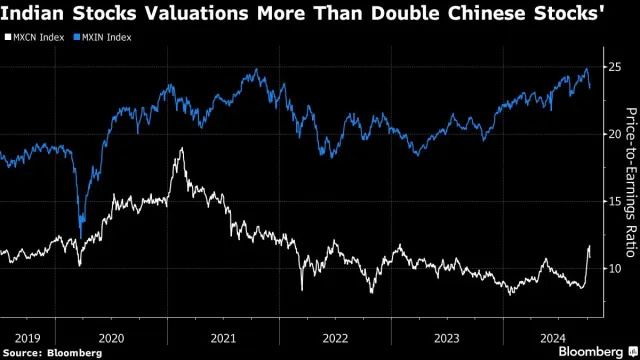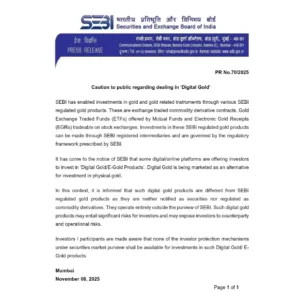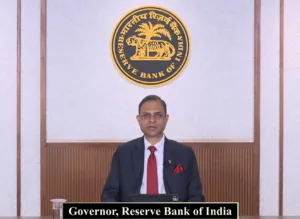Bernstein Research has downgraded the Indian stock market from ‘neutral’ to ‘underweight,’ indicating that they believe it is “quite vulnerable” in the near term. This downgrade is mainly due to concerns about record high valuations compared to China and other emerging markets, increased risks of crowding in large-cap stocks, and a rising number of downgrades in the market.

The firm is worried about the ongoing outflow of foreign investment, a slowdown in systematic investment plan (SIP) flows, and high-growth stocks starting to resemble small- and mid-cap stocks. These factors are putting pressure on India, which is now the fifth largest stock market in Asia. So far this year, the NSE Nifty 50 and BSE Sensex indices have risen by 14.9% and 12.7%, making them the ninth and twelfth best-performing indices in Asia.
India is considered the most expensive emerging market, with a price-to-earnings ratio of 24.5. Bernstein has ended its long momentum trade in India, as valuations have reached record highs while the earnings cycle is likely to see downgrades.
India is likely reaching the peak of its Return on Equity (ROE) cycle, which is expected to be much lower than what was seen before the Global Financial Crisis. Once this peak is hit, we believe concerns about overvaluation will rise quickly.
In the top 100 companies, there are only a few areas with significant growth potential. This will limit further gains in the broader market. As profit margins reach their limit, investors will focus on companies that can grow their revenue in unusual ways or have upcoming catalysts, reducing the number of good investment opportunities.
Despite this, Bernstein is optimistic about the broader Asia region, driven by expectations of interest rate cuts in the US, reasonable valuations, lower equity risk premiums, and signs of earnings recovery. They continue to favor China, Hong Kong, and ASEAN markets, citing strong investor reactions to China’s unexpected policy support.
Following this policy announcement, Bernstein believes that the risk-reward balance in China is favorable, even though some investors have been disappointed by the lack of clarity regarding stimulus measures. They anticipate that concrete announcements will come soon.
In their overall strategy, Bernstein has shifted to being long on China and short on India while focusing on value investments in Asia, excluding China, to prepare for potential interest rate cuts. They also suggest looking at Japan as another significant Asian market.
Nomura’s India Strategy indicates that with renewed interest in Hong Kong and Chinese stocks, India might see some short-term underperformance. However, they believe this phase won’t last long. The long-term outlook for India remains promising, and if valuations become more attractive, both foreign and domestic investors are likely to return to the market.
Currently, the MSCI India index is trading at a forward price-to-earnings (P/E) ratio of 24.1x. If this ratio decreases to around 21x, it could entice investors to rebuild their positions in the market. The India Equity Strategy team has set a target of 24,860 for the NIFTY Index by the end of 2024.
Meanwhile, The World Bank has raised its growth forecast for South Asia to 6.4% in 2024, up from 6.0%, driven by strong domestic demand in India and quicker recovery in countries like Sri Lanka and Pakistan.
India’s economic growth for the fiscal year ending March 2025 has been revised to 7% year-on-year, up from the earlier estimate of 6.6%. This increase is due to a rebound in agriculture and higher private consumption.
The World Bank confirms that South Asia is the fastest-growing emerging economy region it tracks. It expects the region to maintain strong growth of 6.2% annually over the next two years.
India’s central bank RBI has kept its GDP growth forecast at 7.2% for the current fiscal year and shifted its policy stance to neutral.
The World Bank also highlighted that increasing women’s participation in the workforce, which is the lowest globally at 32%, could significantly boost the region’s long-term economic output.
Bringing you the latest updates on finance, economies, stocks, bonds, and more. Stay informed with timely insights.
























Be First to Comment